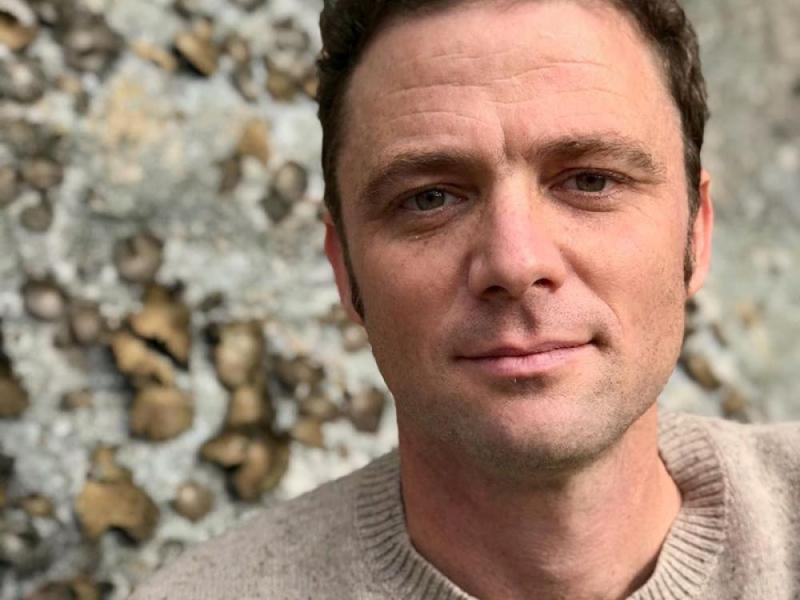Citizen Science Project Nets Major NSF Grant for UVA Biologist

Observing evolution in humans can be a slow process, considering that it takes 20-30 years to see the impact one generation has on the next, which is why scientists turn to an organism with a much shorter lifecycle to study the mechanics of a process that allows you to pass your eye color on to your child or that allows a virus like COVID-19 to change and to survive even in individuals who already have immunity to an earlier variant.
The common fruit fly has long provided biologists with insight into the nature and role of genetic mutation and variation in evolution. They can be found in abundance hovering around fruit bowls, trash cans and compost piles, and their short lifespan allows researchers to observe the impact of a new generation every 10 days.
One aspect of evolution that’s still not fully understood is how it is affected by environmental factors like climate and the availability of resources, but the work of Alan Bergland, assistant professor of biology with the University of Virginia’s College and Graduate School of Arts & Sciences, may help answer some of those questions. Bergland works with fruit flies commonly found in Virginia, and this January, his research earned him one of the National Research Foundation’s 2022 CAREER awards, one of the most prestigious honors for early-career faculty members whose work in both the lab and the classroom shows exceptional promise.
In the lab and in the field, Bergland studies how fruit fly populations in central Virginia change over the course of the growing season in response to changes in the environment, an aspect of evolutionary biology called adaptive tracking. Since the fruit fly species he studies has very short generation times, each one of approximately 15 generations that are active and reproducing between the months of May and November experiences a different environment with differences in weather, resources, competitors and predators. Additionally, generations of fruit flies born late in the year must also be to survive the additional challenges winter brings.
“Because of that, these populations adaptively evolve, meaning that the genetic composition of the population changes because some individuals are genetically better at surviving in a particular environment than others,” Bergland said. “So, the population is constantly going through cyclical evolutionary events.”
And understanding how adaptive tracking works in fruit flies could help scientists better predict the pace of evolution on a much larger scale, which will become increasingly important in a world with a rapidly changing climate.
“It means both being able to predict which genes are facilitating change to new climates and also predicting the persistence of populations and their responses,” Bergland said. “This work will allow us to better understand if adaptive tracking is a common feature in multiple fly species, identify the genes underlying adaptive tracking, and evaluate the ecological drivers of evolutionary change.”
The award comes with a grant of $1.2 million that will fund an extensive citizen-science program in collaboration with regional master gardener programs and a partnership with Piedmont Virginia Community College to significantly expand the collection of flies and their genetic data throughout Virginia, across the growing season and over multiple years.
Bergland and his students will sequence the genomes of flies collected through these community-based collaborations and add them to a growing database of genetic information collected from sites in Europe and North America, in partnership with other universities.
“A lot of the data that we generate will feed into this larger consortium-based project,” Bergland said. “And this large time series data set will be a really unique resource in evolutionary biology, because there are very few instances where we actually have genetic information on populations through time.”
In addition to funding the administrative aspects of a citizen science program, the grant will also fund ongoing research in the orchards on Carter’s Mountain just outside of Charlottesville and at UVA’s Morven Farm property where Bergland and his team study how the challenges of winter affect fruit fly genetics. It also will provide funding for undergraduate research positions and provide support for a new, advanced undergraduate course in computational evolutionary biology that will use the genome sequences that Bergland and his lab team generate to provide students practical skills in applied data science.
In a time when the world is faced with the challenge of trying to understand the public health impacts of evolution of an organism like the COVID-19 virus, the educational and public outreach components of Bergland’s work may be where some of its greatest value lies.
“One aspect of this work is increasing literacy in evolutionary biology not just at the college level but in the public sphere,” Bergland said. “I think that increasing an awareness of evolutionary biology and helping to train the next generation of scientists and doctors in the science of evolution will be absolutely crucial for understanding and responding to future pandemics.”
“Alan is dedicated to integrating his research into his undergraduate classes and out to the public through his citizen-science outreach projects in the Charlottesville community,” said Deborah Roach, chair of UVA’s Department of Biology. “This is a wonderful model of how research, teaching and outreach can be integrated.”




